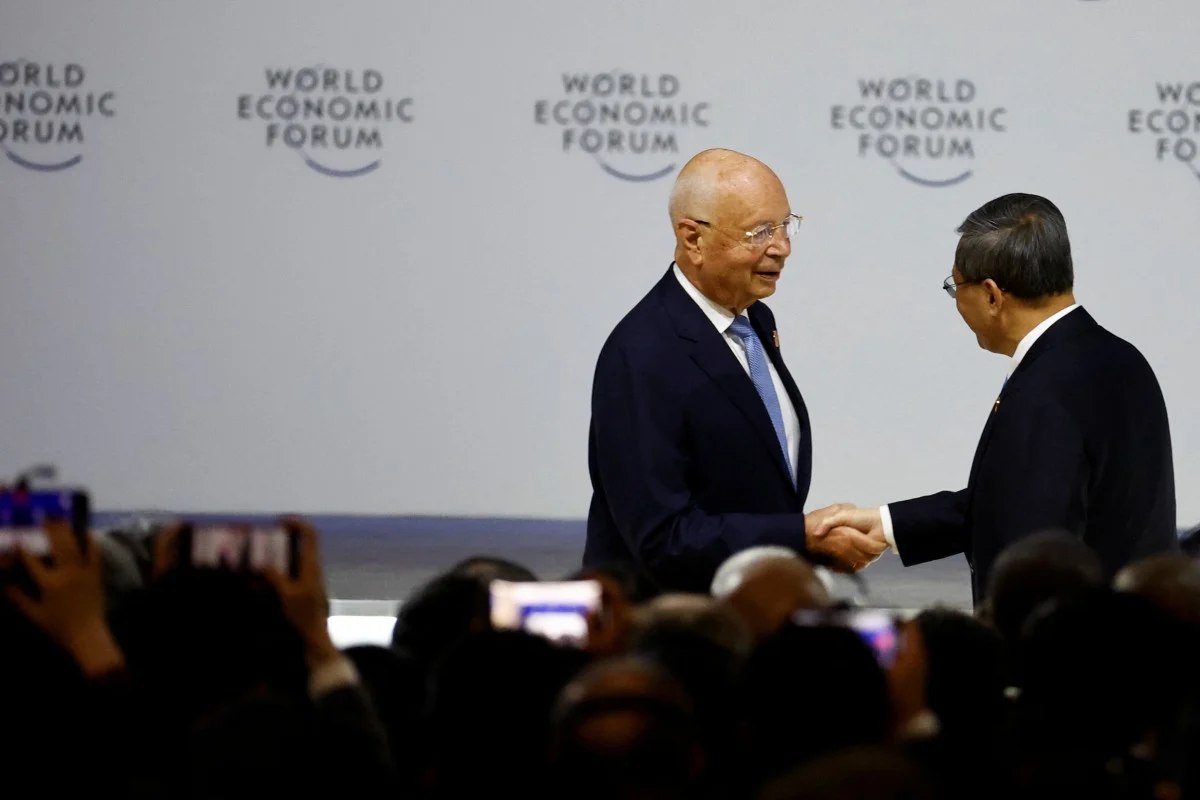Tianjin, China – Premier Li Qiang addressed an audience of global leaders at the World Economic Forum’s 14th Annual Meeting of the New Champions, also known as the Summer Davos, in the northern port city of Tianjin. The Premier’s opening address emphasized China’s commitment to attracting foreign businesses and private investments while instilling confidence in the country’s economic recovery.
Following his recent trip to Germany and France, Premier Li Qiang highlighted the importance of sustaining momentum for innovation and entrepreneurship to drive growth and promote a more equitable, sustainable, and resilient global economy. The three-day meeting explores six key pillars: rewiring growth, China in the global context, energy transition and materials, post-pandemic consumers, safeguarding nature and climate, and deploying innovation.
Premier Li Qiang’s speech emphasized China’s dedication to a market economy, free trade, and contributing to a world economy that benefits all nations. While he did not introduce new economic policies during his address, he assured the audience that pragmatic and effective plans would be implemented.
In his remarks, Premier Li Qiang expressed his belief that China possesses untapped potential for further development. He acknowledged that while the country has not achieved balanced development, it demonstrates ample room for growth. The Premier reaffirmed China’s commitment to pushing its economy toward high-quality development and establishing a stable and sustainable path in the long run. This includes expanding the market, fostering cooperation, and providing opportunities for global economic recovery and investment.
Premier Li Qiang also addressed global challenges and emphasized the negative impact of ideological opposition, incitement of hatred, and containment efforts. Without naming specific countries or individuals, he noted that such actions had caused enormous destruction to the world’s development.
Advocating for a non-politicized approach to economic issues, Premier Li Qiang stressed the need to protect global industrial and supply chains while ensuring that economic globalization benefits all nations and their populations. While acknowledging that competition is inevitable as China continues to open up, he emphasized the importance of resolving disputes properly and avoiding politicizing or expanding economic risks.
The Premier highlighted the significance of enterprises in understanding economic risks and challenges within industries. He emphasized that enterprises should have the strongest say in decision-making, while the government and other relevant organizations should avoid creating obstacles or intervening unnecessarily. Premier Li Qiang discouraged politicizing risks and cautioned against turning them into ideological battles, as this would only lead to further complications. He dismissed the notion of de-risking as a false proposition, sending a clear message that China stands against such approaches.
Premier Li Qiang acknowledged the global attention placed on the conference, considering it the first in-person meeting after three years of grappling with the Covid pandemic. He recognized the transformative changes that have taken place in the world, attributing them to the convergence of Covid and unprecedented shifts occurring within the last century. He spoke of the challenges faced at this crossroads of change, including the rise of protectionism, anti-globalism, and increased uncertainties becoming the new normal.
The World Economic Forum’s Annual Meeting of the New Champions in Tianjin provides a platform for leaders to discuss and collaborate on solutions for global economic challenges. Premier Li Qiang’s address emphasized China’s determination to sustain economic growth, foster innovation, and contribute to a more inclusive and resilient global economy.
In addition to Premier Li Qiang, several notable leaders and officials worldwide are set to attend the World Economic Forum’s 14th Annual Meeting of the New Champions in Tianjin. Among them are Mongolian Prime Minister Luvsannamsrain Oyun-Erdene, New Zealand Prime Minister Chris Hipkins, Vietnamese Prime Minister Pham Minh Chinh, and Barbadian Prime Minister Mia Mottley. Their presence at the conference highlights the global significance of the event and the diverse perspectives that will contribute to the discussions.
Furthermore, economic ministers from Oman and Zimbabwe will attend, along with Hungary’s Minister of Foreign Affairs and Trade. This diverse representation underscores the international nature of the gathering and the importance of cross-border collaboration in addressing global economic challenges.
Notably, Ngozi Okonjo-Iweala, the director general of the World Trade Organization (WTO), also joined the Tianjin conference and met with Chinese Premier Li Qiang on Monday. This interaction highlights the importance of international trade and cooperation in driving economic growth and stability.
While China has lifted its Covid-19 control measures since December, the organizers took precautionary measures for the opening ceremony. Attendees were required to undergo Covid-19 testing within 24 hours before the event to ensure the safety of all participants.
However, despite the pressing issues in international affairs, such as Russia’s war in Ukraine and the deteriorating relations between the United States and China, these topics were not included on the official agenda of the conference. Instead, the annual meeting focuses on rebooting innovation and entrepreneurship in Asia and exploring ways to facilitate economic recovery.
According to Xu Tianchen, an economist with the Economist Intelligence Unit, the emphasis on entrepreneurship suggests that Premier Li Qiang may announce a much-anticipated reform package to support the private sector. This anticipation underscores the importance of fostering innovation and creating an enabling environment for businesses to thrive.
The 14th Annual Meeting of the New Champions, as outlined on the official website of the World Economic Forum, features an extensive program consisting of numerous public and private sessions. These sessions revolve around the six key pillars: rewiring growth, China in the global context, energy transition and materials, post-pandemic consumers, safeguarding nature and climate, and deploying innovation. The conference aims to address critical aspects of economic development, sustainability, and technological advancement by covering these pillars.
As the conference unfolds in Tianjin, the world’s attention turns to the discussions and outcomes that will shape the future of global economic cooperation and innovation. The participation of esteemed leaders, officials, and experts from various countries and sectors ensures a diverse range of perspectives and solutions will be explored, fostering a collaborative approach toward building a resilient and inclusive global economy.
Read More:
